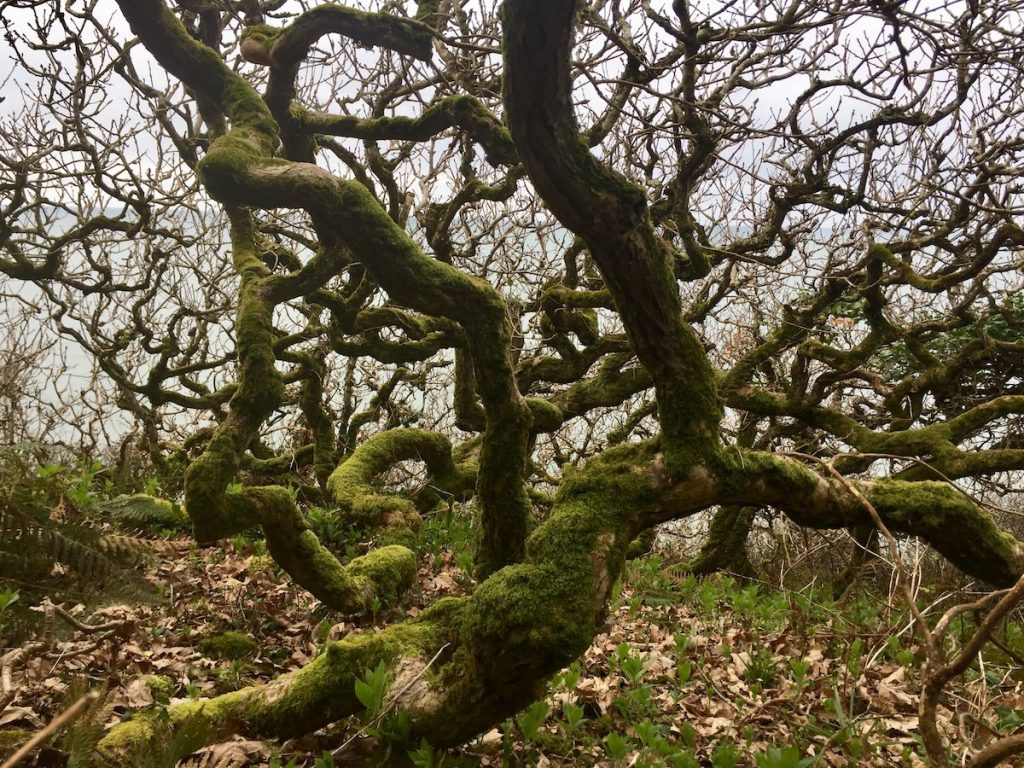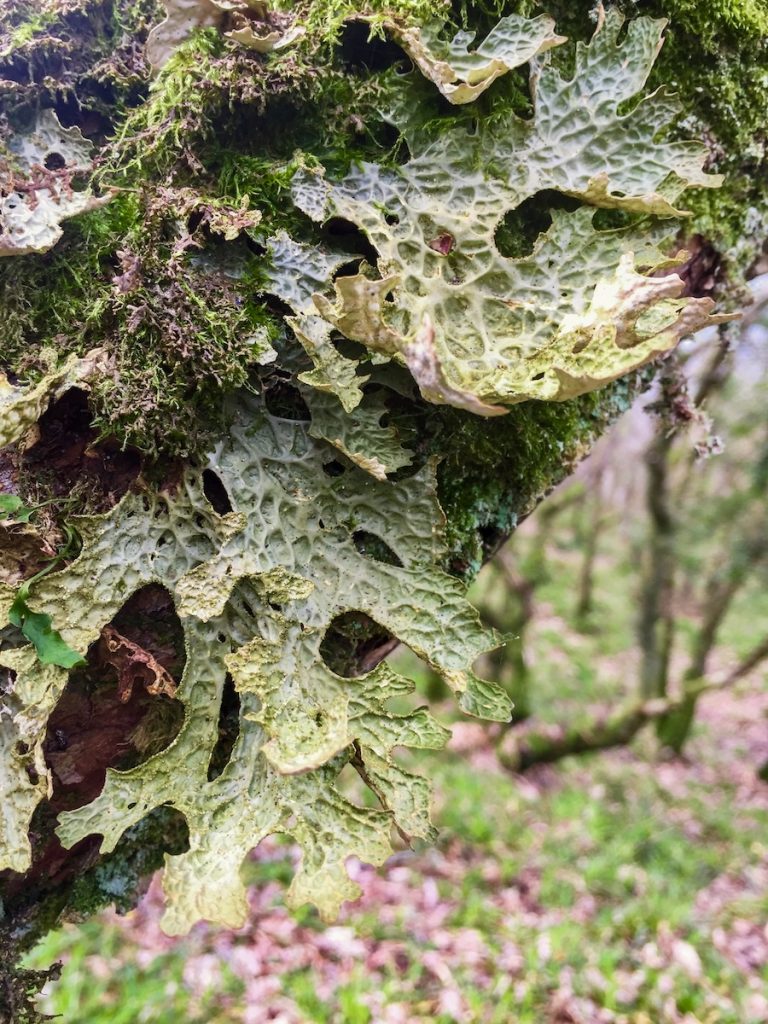Reconnecting with nature through creativity
“The wet young beeches were undergoing amputations, bruises, cripplings, and harsh lacerations, from which the wasting sap would bleed for many a day to come, and which would leave scars visible till the day of their burning. Each stem was wrenched at the root, where it moved like a bone in its socket, and at every onset of the gale convulsive sounds came from the branches, as if pain were felt.”
The Return of the Native – Thomas Hardy
I enjoy reading how Hardy describes nature and the landscape, and his fictional Wessex is a reoccurring character. It has no speaking part, but its presence is always felt. Humans have separated themselves from nature despite being a part of it. However, Hardy’s method of incorportating nature into his work shows both cohabiting. In Tess of the d’Urbervilles, Hardy highlights the Hellish nature of the threshing machine and the exhausting work Tess endures to ‘feed it’ corn. Industry is changing in a way that Hardy fears, and he pines for traditional agricultural methods that felt more in tune with nature’s rhythm.
My passion for nature
Alongside my creative pursuits, I am very passionate about nature. Equally, I am angry and distraught to see how human activity harms the planet. While sorting through some boxes, I found my dad’s ornithology reports he wrote back in the 70s while stationed at Gan (Addu Atoll) with the RAF. With bird strikes always a potential danger to aircraft, his birdwatching skills married well with the need to record the local bird species. At first glance, there didn’t appear to be much on this small Pacific Island, save for herons. But he discovered this was not the case. Dad wrote about how even their small group deployed on an island proved destructive to nature. He noted conservation tends to imply the protection of natural beauty against the encroaching threats of urbanisation, industrialisation and pollution. To his mind, conservation is the protection of the environment against man’s folly. To argue his interpretation, he notes that ninety bird species were recorded over a year before the RAF put an airway on the island. In the eight months Dad was deployed there, about fifteen years later, he counted only twenty-six. He then lists the oil we pour into the sea, the coral we take home as souvenirs and the turtles slaughtered for their shells. We spray insecticides around to kill the biting insects, but also other creatures which do us no harm or cause any irritation.
“Having highlighted the damage that even a small community like our own can do to the environment, let’s think about the world as a whole,” he states.
The part I find most depressing is he wrote this fifty years ago. Conservation still implies the protection of natural beauty against the encroaching threats of urbanisation, industrialisation and pollution. I would also add conservation implies the protection of natural beauty with the greatest benefit geared toward humans. We want natural beauty, but we want access to it at the detriment of the flora and fauna which makes that habitat their home. As humans evolved, we sought ways to make our lives safe, comfortable, and pleasurable. We took from nature, and we gave less and less back to an unsustainable point. We stopped seeing ourselves as part of nature when, in fact, we are only a recent addition.
Conservation is rarely planned for the long term. Every year the media fauns over something new. One year it was plastic. The next, hedgehogs, beavers, water voles, rewilding, peat compost, ash dieback, wildflowers… they all get their moment in the limelight. Then, when the initial buzz wears off, funding dries up because something else has come along to campaign about. This year’s focus seems to be on UK temperate rainforests. I see the benefit of awareness, but this is a double-edged sword. Wistman’s Wood is probably the most well-known UK temperate rainforest. The rise in social media influencers and photographers taking shots to gain more likes and followers equally causes more foot traffic to these areas, harming the fragile ecosystem that a small group of people is trying to save.


Gross National Happiness
Around the same time my dad was birdwatching in Addu Atoll, E.F. Schumacher wrote, “Small is Beautiful: A study of economics as if people mattered.” He suggests natural resources should not be seen as expendable income but as capital and subject to continual depreciation and eventual depletion. More words from fifty years ago which still resonate today. He coined the term Buddhist Economics early in the 50s, which works by considering stages after a product is consumed in both the individual, society and the environment. Instead of focusing on maximising profit, they focus on minimising loss. Instead of focusing on gross national product, they focus on gross national happiness. It sees us as people who are interdependent with one another and with nature. People should not be dehumanised and seen as anonymous robots in the production line. Human craft is no longer important, and neither are human relationships. Why hire an artist or a writer when computer software lets you type in a prompt and produces it for you? Why talk to another person when you can ask a company chatbot? We evolved to use our hands and brain, but increasingly we invent methods to bypass using either. Despite growth, we are increasingly unhappy. There is too a desensitisation between people and nature. Some are unwilling to accept humans are contributing to climate change and environmental degradation. Many close their senses to it, arguing it is better to live in ignorance because their mental health will worsen if they dwell on it.
This week we are experiencing record temperatures across the globe. The UK government and opposition are questioning whether to water down their net zero policies because they would rather stay/get in power and enjoy the short-term benefits than face tackling climate change. Climate protesters are painted as villains. The suffragettes used such tactics, and I am glad because I now have the right to vote.
Not everyone has access to green spaces. Blistering hot temperatures or the pollution from wildfires might stop you from stepping outside. Part of my conservation work is encouraging people to reconnect with nature; to remind others we are a part of it. So how can you reconnect if you cannot access nature? The answer: through creativity.
Expressing nature through our writing
Someone told me they write because they liked the thought that they were creating rather than consuming and destroying. Let me ask, how do you express nature in your writing? Take a tree as an example. Do you convey how you or a fictional character interacts with the tree and the emotions you/they feel? Or do you embody the tree itself? Imagine the centuries it may have stood and its interaction with nature and other trees around it. Maybe this is the time to inject a little of what Thomas Hardy did in his novels and write the landscape like it is a character in itself. Untamed and unpredictable, beautiful and ugly, peaceful and violent. Reading Hardy, I notice he writes of things no longer present in our current landscape. Britain is one of the most nature-depleted places on the globe. Perhaps writers should write about their connection with nature for posterity. At least then, those who come after us will glean an idea of what it was once like to live alongside nature before we become alien to what we are a part of.